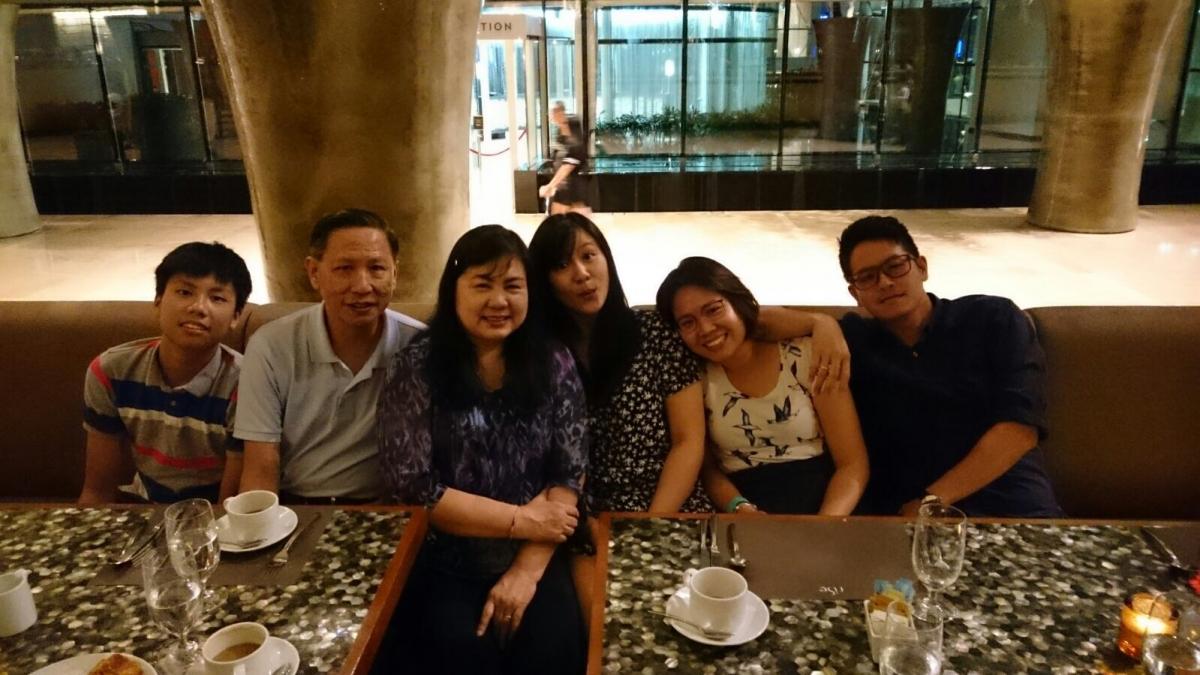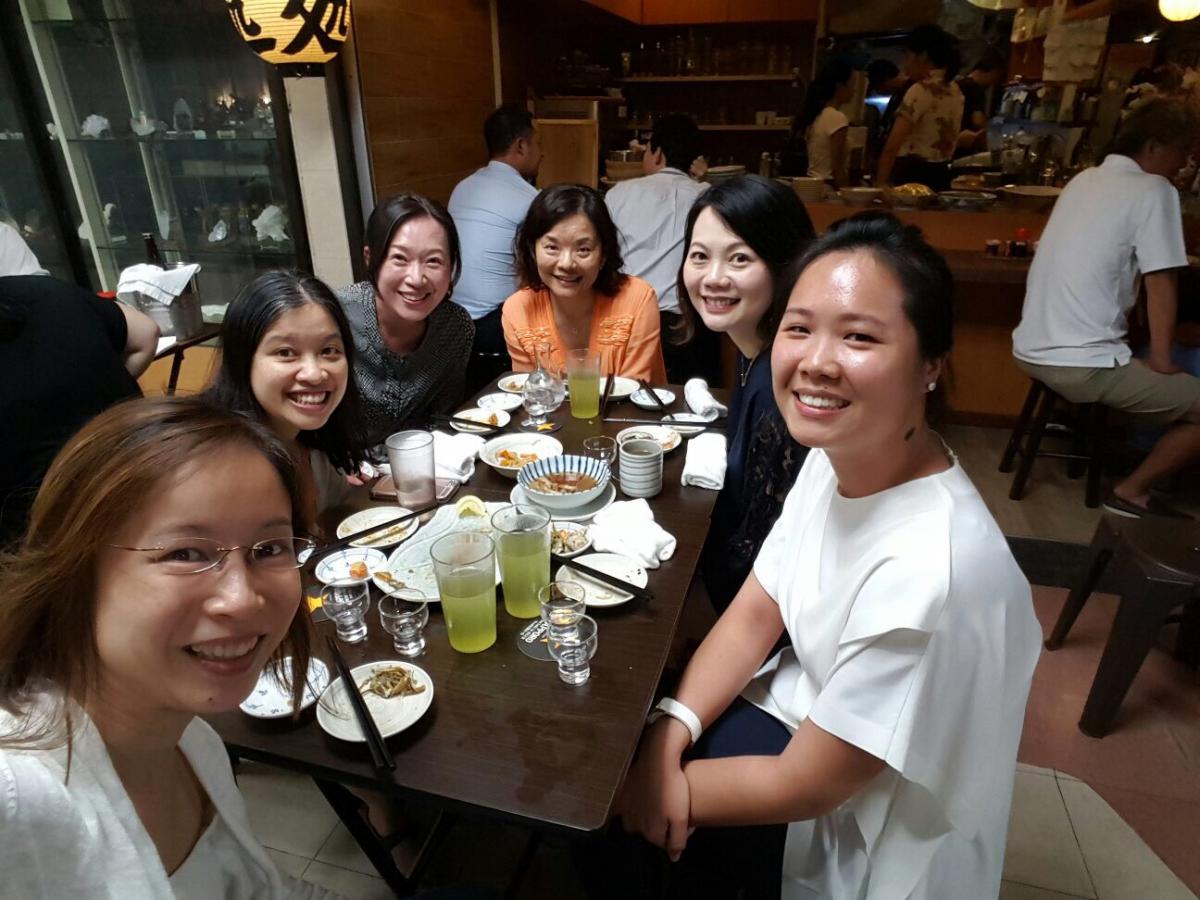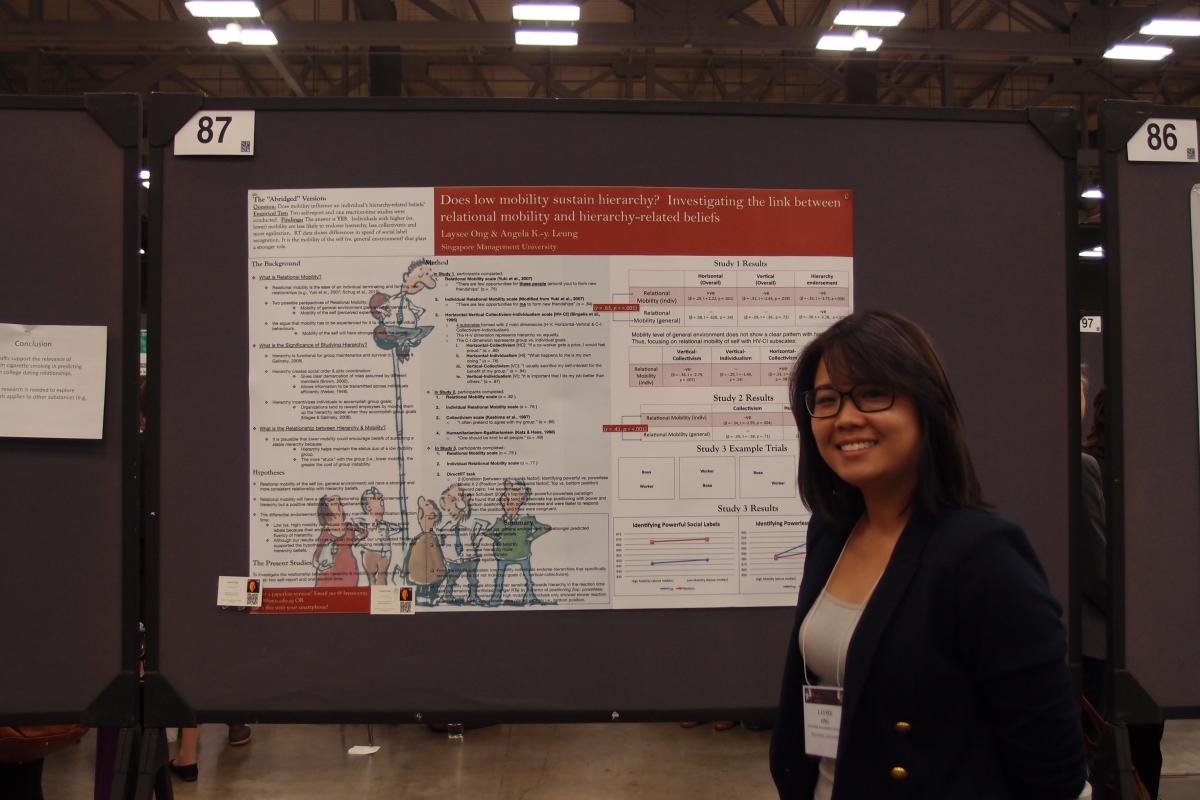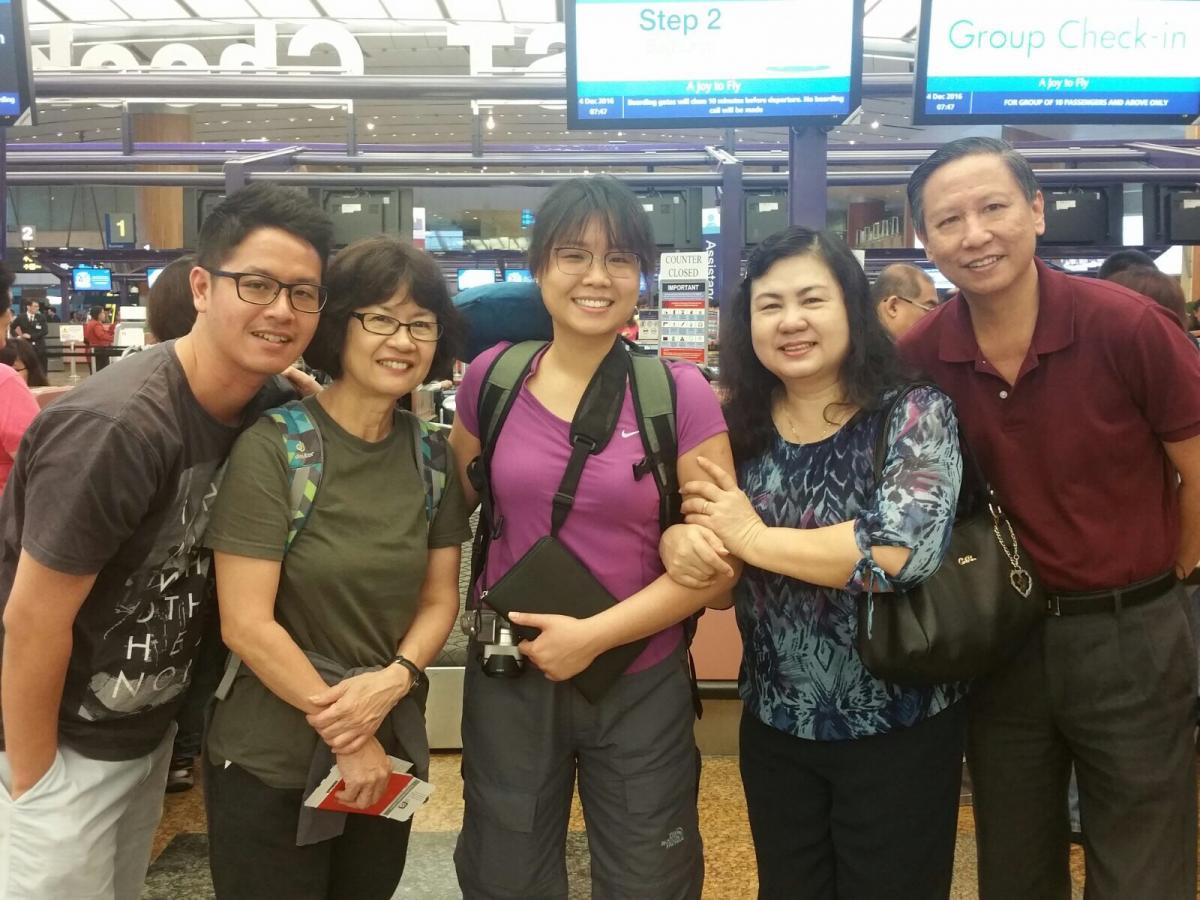On average, our students enter the MD programme at age 25, with just 5.5% of them already holding a PhD. Ong Lay See, 31, from the MD Class of 2021, took a path less travelled to medicine. Before joining the Duke-NUS MD programme, she completed a bachelor’s degree in Economics and Psychology, and a PhD degree in Psychology.
The path to medicine is seldom easy, and familial support can play a huge role in one's journey. Lay See was fortunate to have her parents' and husband's full support in her pursuit of medicine. At her white coat ceremony, we spoke to her family members to learn more about their perspectives.
 Lay See (5th from left) with her family
Lay See (5th from left) with her family
Admissions: How do you feel about your daughter pursuing Medicine now?
Lay See’s Mum: We are extremely happy and proud of her. We’ve never pressured her to study any particular subject as we’ve always believed in allowing our children freedom of choice. She did well at university and we’re very happy that she is now pursuing her deep interest in medicine and fulfilling her aspirations. Coming from a social science background, it was not easy for her and she had to sacrifice time to gain exposure in medically-related fields.
Lay See’s Dad: We are very happy for her because we initially saw it as a ‘mission impossible’, given her non-traditional background – social sciences. But she’s always been very disciplined in her pursuits and that really paid off.
Admissions: As her husband, what role did you play in her path to medicine?
Lay See’s Husband: I think my role was to nudge her in the direction that she had already wanted. Often the Singaporean mindset is that we have to follow a particular path to do medicine, but you don’t necessarily have to go down a certain path based on what you studied in university. I encouraged and pushed her to go for it, because there were moments where she doubted herself during the application process. Sometimes you have to start from the bottom again, and I think that is what scares some people. But if you are really passionate, and if it’s your dream, I don’t think it should deter you. On a related note, there were also many sacrifices that we had to agree on as a married couple.
Admissions: Would you elaborate on these sacrifices?
Lay See’s Husband: We had to find a way to finance her studies. No matter how passionate you are about pursuing something, you definitely have to be practical about the costs involved. Having the passion for something can motivate you to give up other luxuries to save for it. Luckily for us, we were able to make accommodations in our lives to afford it, and Lay See also worked hard to save up before applying. Especially for married couples, one partner deciding to pursue medical school is a big decision that has to be jointly made. Apart from financial, there is also the time commitment. We’ve had an open discussion about this throughout our relationship so we knew what to expect – after all it started back when she did a PhD. You really have to set your partner’s expectations right, and being a supportive partner is also much easier said than done.
Admissions: Now that we’ve heard from your family, what were some of your own considerations when applying to us?
Lay See: Because my family was supportive from the get-go, I didn’t have to worry about that aspect and could concentrate on the application process. I was privileged to be able to work under A/Prof Angela Chow and gain valuable experiences that better informed my decision to be a physician. Many others may not be able to have this opportunity to explore a new field due to their responsibilities and obligations, and I’m extremely thankful for it. I’m also extremely blessed to have met my supervisor, Dr Angela Leung and other great mentors during my SMU days, who imparted invaluable research skills to me and played important roles in nurturing the researcher in me.
 Lay See with her supervisor and mentors
Lay See with her supervisor and mentors
 Lay See participating in a conference
Lay See participating in a conference
Admissions: Did you ever feel like time was running out, since you pursued both a Bachelor’s degree and PhD before this?
Lay See: Some of my friends warned that it was going to be a long journey, and would ask me if I was sure and okay with that. I’ve also heard things about how being older may make it harder for me to endure the long hours as a junior doctor. I hear all these things but they never really got to me. I never saw my age as a concern. Although I’ve taken a longer path than most, I definitely don’t regret doing a PhD because it has really prepared me for this journey. I don’t think I would have been in a better position to pursue medicine prior to my tertiary education. The maturity, mental resilience and stamina I’ve gained through a PhD was critical to my development and I’ve never been surer.
Lay See’s Husband: Being younger may give you a physical advantage, but there are some who burn out early too because of a lack of mental resilience. I think having more life experience is advantageous in this sense.
 Lay See's family sending her off on a medical mission
Lay See's family sending her off on a medical mission